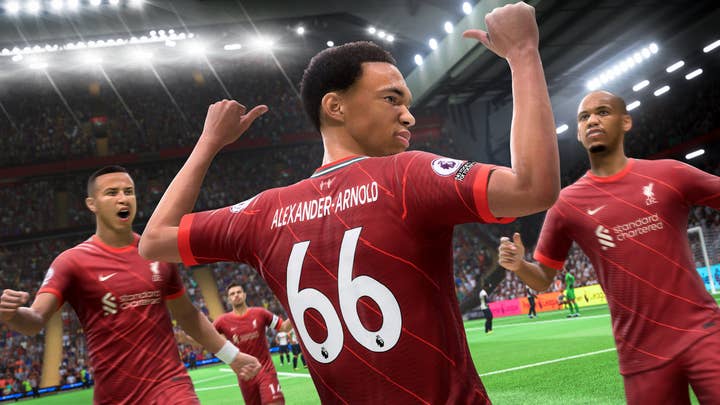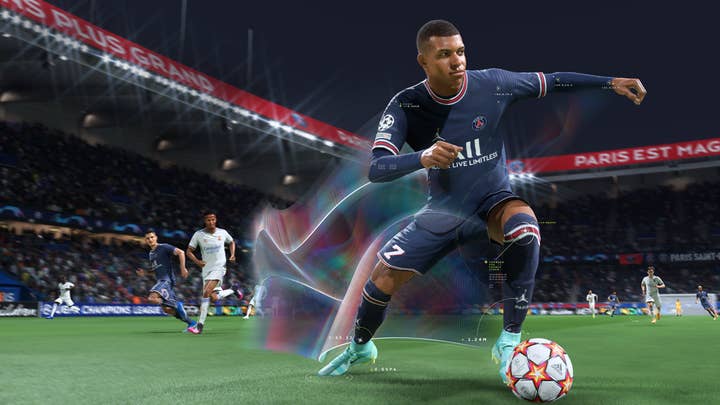Would losing the FIFA name hurt EA? | Opinion
Common sense should prevail, but there's more to the FIFA game series than the brand
Ask anyone what FIFA is and they'll give you one answer: it's a video game.
Even me, a fan of Premier League football and an avid follower of the sport, would assume that any reference to FIFA is about a game, and not the Fédération Internationale de Football Association (which I had to Google).
EA has achieved that over 28 years, filled with countless games, spin-offs and World Cup tie-ins. EA has built the FIFA brand ever since the game's humble beginnings in 1993. Back then, FIFA was a project managed out of Europe -- which was unusual for EA at the time, as it was primarily a US company in those days -- and developed by a small team in Canada, who often felt that senior management had forgotten they were even making it.
The hilarious anecdote from back then, which may have been warped with time, is that when EA acquired the FIFA licence it thought it had acquired the rights to all the teams and players, only to find out that's not how sport works in Europe. All EA had bought in 1993 were the rights to the name FIFA.
FIFA is a brand name that, in reality if not on paper, belongs as much to EA than it does to the association that came up with it
From that moment on, EA started a journey to create the most realistic soccer game on the planet. All the authenticity that is at the heart of EA Sports' games ("if it's in the game, it's in the game") had to be collected stage-by-stage with FIFA. The commentators, the technology, the players, the stadiums, the leagues... many of them were individual, painstaking deals that went into making FIFA the authentic football video game.
The notion that FIFA might disappear from the box of EA's upcoming football games is significant. FIFA is a brand name that, in reality if not on paper, belongs as much to EA than it does to the association that came up with it. The mere thought of it becoming available for another company to acquire feels as ridiculous to me as EA snatching the Call of Duty brand and plastering it over its Medal of Honor titles.
There may not be anything legally wrong with taking the FIFA brand, but it could look like a cheap marketing trick to take the IP and stick it on a different football game. Considering FIFA brings little with it outside of the World Cup (so no actual team or league licenses), anyone who acquires it will look like they're trying to effectively 'fool' more casual fans into thinking they're buying something they're not. If you're going to take the FIFA brand, you're going to have to deliver something that matches what gamers expect from it.
As a result, despite all the posturing, this feels like that time Marvel and Sony had a public spat over Spider-Man. Eventually common sense will prevail.

But what if it doesn't? What if in the future EA's annual football title changes it name? Should we expect a sales collapse for one of the world's biggest video games?
History tells us no. Although there's no example quite as big as FIFA, video games is awash with examples of gamers abandoning one brand over something better.
Probably the most reassuring example is another football game. In 2006, the creators of the Championship Manager series -- Sports Interactive -- jumped ship to Sega, and in doing so left behind the brand it had built with publisher Eidos. It was a risky move. Sports Interactive was gambling on its fanbase following it to its new game, Football Manager, and that it could continue where it left off.
And the result was it did. The Championship Manager series continued on, but it was Football Manager that quickly emerged as the market leader. Ultimately, fans were more interested in the game underneath than the name on the box.
FIFA is a different beast, of course. It's significantly bigger, and it has its detractors, particularly those frustrated by the game's monetisation of the Ultimate Team mode. I am sure Take-Two, a company which has just taken its own tentative steps into the football market with its $378 million acquisition of mobile developer Nordeus, is monitoring the situation carefully.
But to compete with EA's FIFA will take more than just buying the brand. Fans of FIFA want the authenticity, they want the quality, they want the official licences and the real stadiums and the correct statistics.
And it's going to take a lot, lot more than a reported $1bn licensing deal to compete with that.









